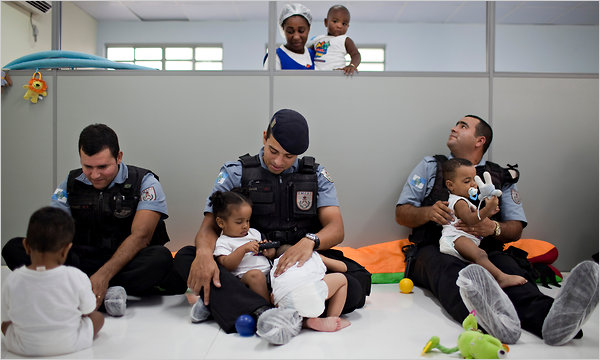
Welcome to the ezine produced by SGI Buddhists that prompts the positive, kindles the constructive, highlights the hopeful and leaves you feeling - well, up!


Brazilian policemen work in a child-care centre in the favela to strengthen community ties and try to overcome the distrust engendered by years of police corruption.
‘At the beginning people were very suspicious. We go once a week to Cidade de Deus. I belong to a pacification unit, a police patrol battling drug dealing in the slums. One of the children I play with is called Pedro. At first he was frightened of me but now he likes me and we play a lot together,’ says a patrol member.
Cidade de Deus was a housing development built in the 1960’s to take residents from 23 slum clearances in Rio de Janeiro. With a flourishing drug trade and rival criminal gangs, it became the dangerous and violent community shockingly depicted in the 2002 movie The City of God.
The Police Pacification Unit, based on a model of community policing, was introduced in 2009 to overturn the rule of the drug gangs and so far, results have been promising. Homicide rates have fallen, the number of arrests has increased and school attendance is up by 30%.
'It was horror before,' says a local resident, who runs a small bar on the ground floor of her house. 'Bodies would be thrown out of passing cars, and there were kids with revolvers.' Her niece was killed by a stray bullet from a gunfight between the police and traffickers. Others are more skeptical, citing the police reputation for corruption and brutality which the peace police are now fighting to overcome.
Their job is part traditional police work, part social work. In addition to regular police work, they teach classes like karate, guitar, piano and English. They want people to know that they are here to stay and that they want to make life in the favelas better for everyone. With increasing investment in infrastructure and the community policing effort perhaps new ties of trust can finally be forged.

